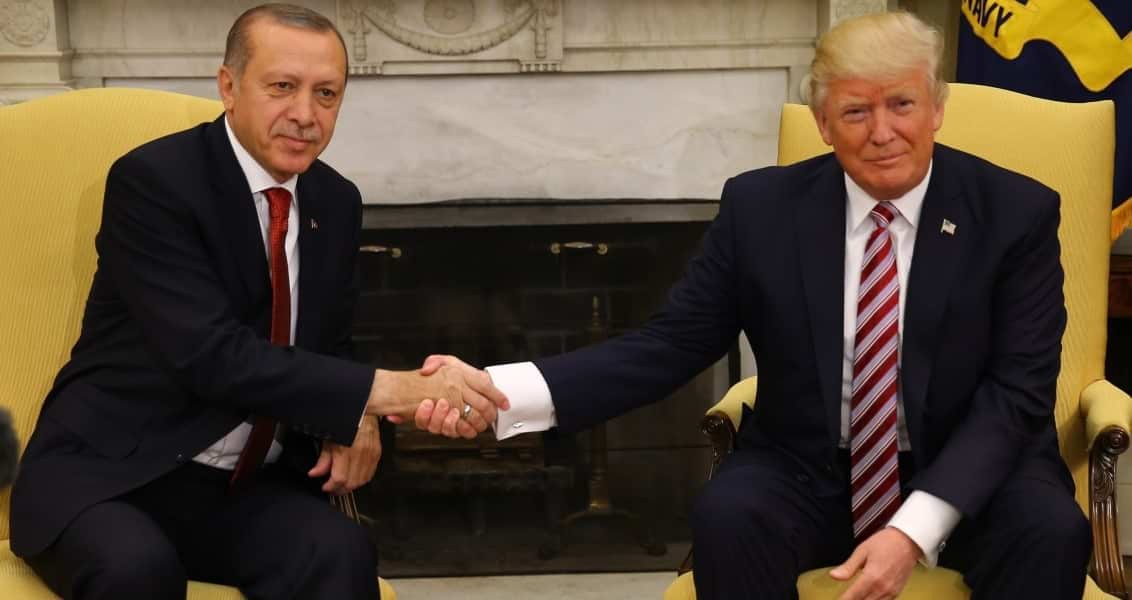
What Is the Washington Summit's Message?
Mr. Trump's determination to work with Turkey has the potential to create a new trend of cooperation in re-designing the Middle East
Share
What was achieved by the Erdoğan-Trump meeting where photos showing the sincerity of the two leaders were taken? This is the most critical question for the future of Turkish-U.S. relations. Before anything else, it was a good start with regard to the betterment of chemistry between President Recep Tayyip Erdoğan and U.S. President Donald Trump.
This means the possibility of ending the discourse that created a crisis in Turkish-U.S. relations since 2013 has emerged or the idea of cooperation with Turkey under the leadership of President Erdoğan has again gained importance in the new U.S. administration.
Let's remember, after the Erdoğan-Obama summit in May 2013, the period of increasing tensions in bilateral relations started. Since that time, former U.S. President Barack Obama changed his attitude toward Mr. Erdoğan. Mr. Obama, who previously regarded Mr. Erdoğan among the leaders that he "trusts," started seeing him as his opposition because Mr. Erdoğan didn't get his "great army" involved in the Syrian crisis and didn't start the normalization process with Israel.
It is very noteworthy that the Gezi Park incidents, the Dec. 17-25 judicial operations and the July 15 coup attempt happened during the highly charged period in Turkish-U.S. relations. Here, Mr. Trump's determination to work with Turkey has the potential to create a new trend of cooperation in re-designing the Middle East, including the future of Syria-Iraq and the limitation of Iranian expansionism.
In the big picture, although some disagreements on issues like the People's Protection Units (YPG) and the Gülenist Terror Group (FETÖ) still remain, a positive perspective to "manage" them in the medium term seems to have appeared.
Obviously, nothing has changed in the U.S.'s decision to cooperate with YPG terrorists in the Raqqa operation. President Trump has repeated this decision to work with the YPG in the Raqqa operation, which was prepared by CENTCOM during the Obama administration and whose first stage was completed.
The tactical purpose was preferred to the strategy and options that might put U.S. troops at the de facto front in the region were deactivated. Because, Turkey's offer, saying, "entering together [Syria]" required U.S. soldiers to be in the front. Mr. Erdoğan repeated that the U.S.'s decision to work with a terror group is a huge mistake, and it will cost a lot to the region. In the conversation with the journalists, Mr. Erdoğan highlighted two topics:
1 – Due to this failed decision, Trump will "knock on our doors about Syria." Because, the attitude that neglects the regional demography, can get nowhere as it couldn't in Afghanistan and Iraq.
2- "If a YPG attack does happen, Turkey may strike the terror group in line with the rules of engagement without asking anyone. The Turkish attitude of "not allowing a terror corridor, striking it" surely requires a safe line between Mr. Erdoğan and Mr. Trump when necessary. The message indicating that Turkey keeps an offensive like Operation Euphrates Shield on its agenda in case of an attack from the outlawed PKK/YPG was conveyed to U.S. officials at the White House. Nevertheless, it is obvious that the summit between the two leaders was not limited only to the "Raqqa operation."
Administrating post-Daesh Raqqa, the fate of weapons given to the YPG, the future of the Syrian town of Manbij, the PKK presence in Sinjar, intelligence sharing about the terrorist PKK, the demand for the FBI to start investigating FETÖ and supplying the needs of Turkish defense are all headlines in the negotiations with a new prudent optimistic manner… I describe it as "prudent" because Mr. Erdoğan, based on his experiences, is focusing on "happenings" in the future but not the "given guarantees."
In the following period, we will see whether the damaged wounds of Turkish-U.S. relations will be healed or not with Trump's way to adopt a "working together" policy. Can this trend also provide fresh air in Turkey's alliance relations with the EU and NATO? Or does a new era start in the stance on the needs of Turkish defense. Because NATO's attitude toward Turkey about the Syrian civil war is gradually strengthening Ankara's feeling to take care of itself. Additionally, NATO will receive help from Turkey, Russia or China for the defense needs that its alliances do not supply.
On May 25 in the NATO summit in Brussels, certain clues about some parts of the problems will became clear. Of course, for the future of this new positive trend, Mr. Trump's presidency, which is recently under pressure owing to his advisors' meetings with Russian officials, should be safe.
[Daily Sabah, May 20, 2017]
Tags »
Related Articles






